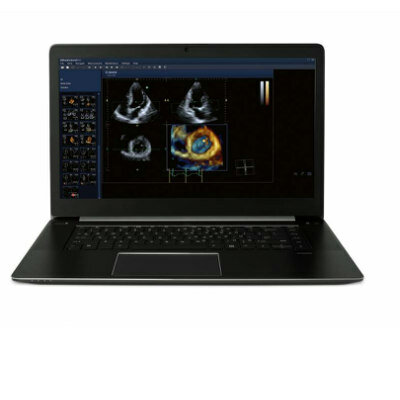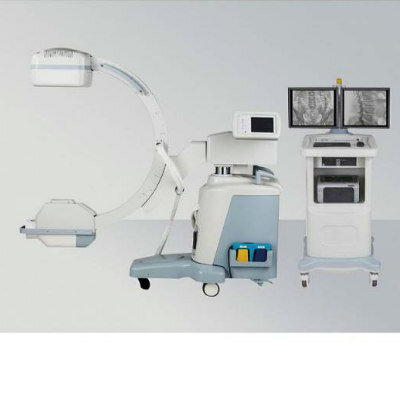Ultrahigh Field MRI Technology Provides More Effective Diagnosis of Breast Cancer
|
By MedImaging International staff writers Posted on 19 Mar 2014 |
Austrian scientists have demonstrated for the first time that a 7-Tesla ultrahigh-field magnetic resonance imaging (MRI) can be used for clinical applications in patients with breast tumors. This may in help, in the near future, to provide a more effective breast cancer diagnosis.
The scientists’ study was published in the April 2014 issue of the journal European Radiology. In earlier research involving 7-Tesla MRI, the clinical application of the technology had been restricted to only one breast due to the limited coil technology available. “The new generation of coils allows clinical application on both sides,” explained Dr. Katja Pinker from the MedUni Vienna department of radiology and nuclear medicine, department of molecular imaging at the Medical University of Vienna (MedUni; Vienna; Austria), where the study was performed in collaboration with the High Field MR Center of Excellence and the Breast Health Center at the MedUni Vienna and Vienna General Hospital.
The 7-Tesla MRI scanner has a high diagnostic accuracy of 96.6%. Dr. Pinker stated, “The higher signal available with 7T [7 Tesla] permits a higher resolution, allowing fine details to be visualized better and a more certain diagnosis to be made. Diagnosis at molecular and metabolic level is also possible with diffusion-weighted or sodium imaging and spectroscopy, helping us to characterize tumors even more effectively.”
The overall outcome of the findings was that bilateral ultrahigh-field MRI of the breast with 7-Tesla can be used clinically without difficulties and “allows patients with breast tumors to be diagnosed more accurately,” the Dr. Pinker. “The future enhancement of ultrahigh-field MRI of the breast with 7-Tesla using molecular and metabolic imaging could represent a further step towards personalized medicine, since not every type of breast cancer is the same.”
By way of comparison, the current clinical standard MRI scans using a 3-Tesla device produce a diagnostic accuracy of up to 93% with the best equipment. The scanning time is also the same, whether it is a 3-Tesla or 7-Tesla MR scanner. The patient spends just over 15 minutes in the tunnel.
The clinical use of 7-Tesla in the examination of breast tumors is therefore possible immediately; however, it also depends on the availability of suitable equipment. Worldwide, there are only eight university institutions that have a 7-Tesla device, including one at the MedUni Vienna/Vienna General Hospital. The 7-Tesla MRI scanner has been around for five years at the MedUni Vienna, and it is the only device of its kind in Austria. The Center of Excellence for High Field MR is one of the world’s leading facilities for this technology.
Related Links:
Medical University of Vienna
The scientists’ study was published in the April 2014 issue of the journal European Radiology. In earlier research involving 7-Tesla MRI, the clinical application of the technology had been restricted to only one breast due to the limited coil technology available. “The new generation of coils allows clinical application on both sides,” explained Dr. Katja Pinker from the MedUni Vienna department of radiology and nuclear medicine, department of molecular imaging at the Medical University of Vienna (MedUni; Vienna; Austria), where the study was performed in collaboration with the High Field MR Center of Excellence and the Breast Health Center at the MedUni Vienna and Vienna General Hospital.
The 7-Tesla MRI scanner has a high diagnostic accuracy of 96.6%. Dr. Pinker stated, “The higher signal available with 7T [7 Tesla] permits a higher resolution, allowing fine details to be visualized better and a more certain diagnosis to be made. Diagnosis at molecular and metabolic level is also possible with diffusion-weighted or sodium imaging and spectroscopy, helping us to characterize tumors even more effectively.”
The overall outcome of the findings was that bilateral ultrahigh-field MRI of the breast with 7-Tesla can be used clinically without difficulties and “allows patients with breast tumors to be diagnosed more accurately,” the Dr. Pinker. “The future enhancement of ultrahigh-field MRI of the breast with 7-Tesla using molecular and metabolic imaging could represent a further step towards personalized medicine, since not every type of breast cancer is the same.”
By way of comparison, the current clinical standard MRI scans using a 3-Tesla device produce a diagnostic accuracy of up to 93% with the best equipment. The scanning time is also the same, whether it is a 3-Tesla or 7-Tesla MR scanner. The patient spends just over 15 minutes in the tunnel.
The clinical use of 7-Tesla in the examination of breast tumors is therefore possible immediately; however, it also depends on the availability of suitable equipment. Worldwide, there are only eight university institutions that have a 7-Tesla device, including one at the MedUni Vienna/Vienna General Hospital. The 7-Tesla MRI scanner has been around for five years at the MedUni Vienna, and it is the only device of its kind in Austria. The Center of Excellence for High Field MR is one of the world’s leading facilities for this technology.
Related Links:
Medical University of Vienna
Latest MRI News
- Low-Cost Whole-Body MRI Device Combined with AI Generates High-Quality Results
- World's First Whole-Body Ultra-High Field MRI Officially Comes To Market
- World's First Sensor Detects Errors in MRI Scans Using Laser Light and Gas
- Diamond Dust Could Offer New Contrast Agent Option for Future MRI Scans
- Combining MRI with PSA Testing Improves Clinical Outcomes for Prostate Cancer Patients
- PET/MRI Improves Diagnostic Accuracy for Prostate Cancer Patients
- Next Generation MR-Guided Focused Ultrasound Ushers In Future of Incisionless Neurosurgery
- Two-Part MRI Scan Detects Prostate Cancer More Quickly without Compromising Diagnostic Quality
- World’s Most Powerful MRI Machine Images Living Brain with Unrivaled Clarity
- New Whole-Body Imaging Technology Makes It Possible to View Inflammation on MRI Scan
- Combining Prostate MRI with Blood Test Can Avoid Unnecessary Prostate Biopsies
- New Treatment Combines MRI and Ultrasound to Control Prostate Cancer without Serious Side Effects
- MRI Improves Diagnosis and Treatment of Prostate Cancer
- Combined PET-MRI Scan Improves Treatment for Early Breast Cancer Patients
- 4D MRI Could Improve Clinical Assessment of Heart Blood Flow Abnormalities
- MRI-Guided Focused Ultrasound Therapy Shows Promise in Treating Prostate Cancer
Channels
Radiography
view channel
Novel Breast Imaging System Proves As Effective As Mammography
Breast cancer remains the most frequently diagnosed cancer among women. It is projected that one in eight women will be diagnosed with breast cancer during her lifetime, and one in 42 women who turn 50... Read more
AI Assistance Improves Breast-Cancer Screening by Reducing False Positives
Radiologists typically detect one case of cancer for every 200 mammograms reviewed. However, these evaluations often result in false positives, leading to unnecessary patient recalls for additional testing,... Read moreUltrasound
view channel.jpg)
Diagnostic System Automatically Analyzes TTE Images to Identify Congenital Heart Disease
Congenital heart disease (CHD) is one of the most prevalent congenital anomalies worldwide, presenting substantial health and financial challenges for affected patients. Early detection and treatment of... Read more
Super-Resolution Imaging Technique Could Improve Evaluation of Cardiac Conditions
The heart depends on efficient blood circulation to pump blood throughout the body, delivering oxygen to tissues and removing carbon dioxide and waste. Yet, when heart vessels are damaged, it can disrupt... Read more
First AI-Powered POC Ultrasound Diagnostic Solution Helps Prioritize Cases Based On Severity
Ultrasound scans are essential for identifying and diagnosing various medical conditions, but often, patients must wait weeks or months for results due to a shortage of qualified medical professionals... Read moreNuclear Medicine
view channelNew PET Agent Rapidly and Accurately Visualizes Lesions in Clear Cell Renal Cell Carcinoma Patients
Clear cell renal cell cancer (ccRCC) represents 70-80% of renal cell carcinoma cases. While localized disease can be effectively treated with surgery and ablative therapies, one-third of patients either... Read more
New Imaging Technique Monitors Inflammation Disorders without Radiation Exposure
Imaging inflammation using traditional radiological techniques presents significant challenges, including radiation exposure, poor image quality, high costs, and invasive procedures. Now, new contrast... Read more
New SPECT/CT Technique Could Change Imaging Practices and Increase Patient Access
The development of lead-212 (212Pb)-PSMA–based targeted alpha therapy (TAT) is garnering significant interest in treating patients with metastatic castration-resistant prostate cancer. The imaging of 212Pb,... Read moreGeneral/Advanced Imaging
view channel
Radiation Therapy Computed Tomography Solution Boosts Imaging Accuracy
One of the most significant challenges in oncology care is disease complexity in terms of the variety of cancer types and the individualized presentation of each patient. This complexity necessitates a... Read more
PET Scans Reveal Hidden Inflammation in Multiple Sclerosis Patients
A key challenge for clinicians treating patients with multiple sclerosis (MS) is that after a certain amount of time, they continue to worsen even though their MRIs show no change. A new study has now... Read moreImaging IT
view channel
New Google Cloud Medical Imaging Suite Makes Imaging Healthcare Data More Accessible
Medical imaging is a critical tool used to diagnose patients, and there are billions of medical images scanned globally each year. Imaging data accounts for about 90% of all healthcare data1 and, until... Read more
Global AI in Medical Diagnostics Market to Be Driven by Demand for Image Recognition in Radiology
The global artificial intelligence (AI) in medical diagnostics market is expanding with early disease detection being one of its key applications and image recognition becoming a compelling consumer proposition... Read moreIndustry News
view channel
Hologic Acquires UK-Based Breast Surgical Guidance Company Endomagnetics Ltd.
Hologic, Inc. (Marlborough, MA, USA) has entered into a definitive agreement to acquire Endomagnetics Ltd. (Cambridge, UK), a privately held developer of breast cancer surgery technologies, for approximately... Read more
Bayer and Google Partner on New AI Product for Radiologists
Medical imaging data comprises around 90% of all healthcare data, and it is a highly complex and rich clinical data modality and serves as a vital tool for diagnosing patients. Each year, billions of medical... Read more



















